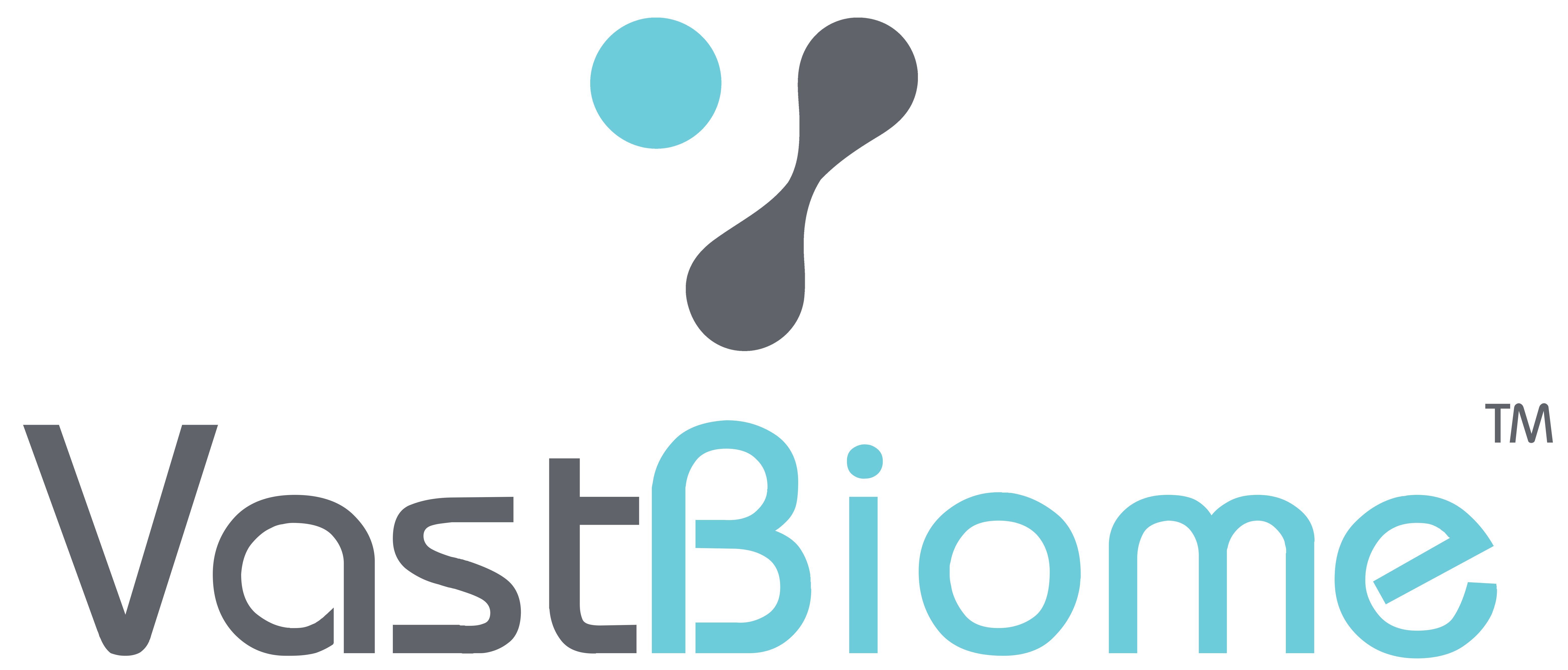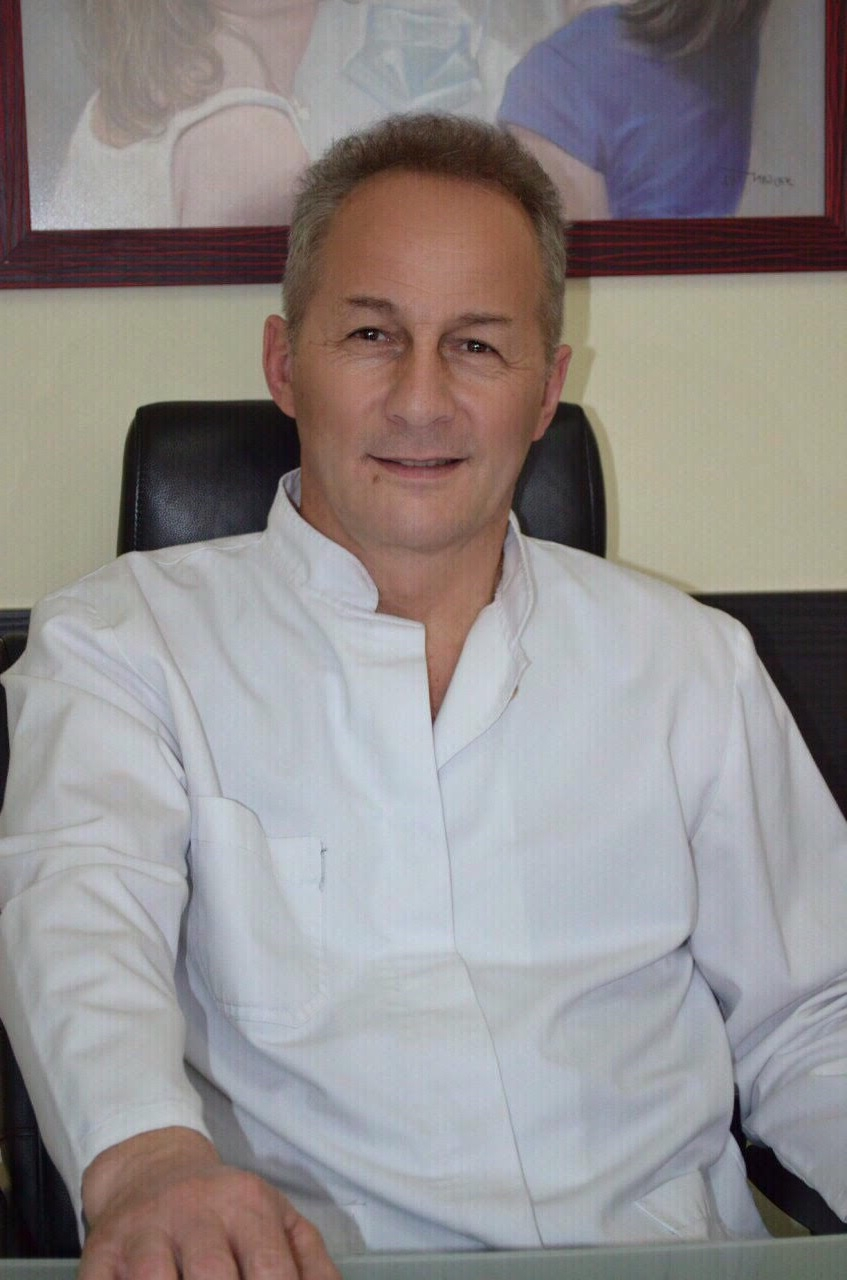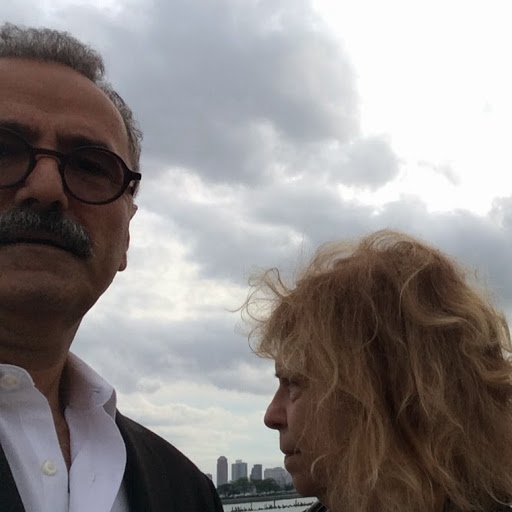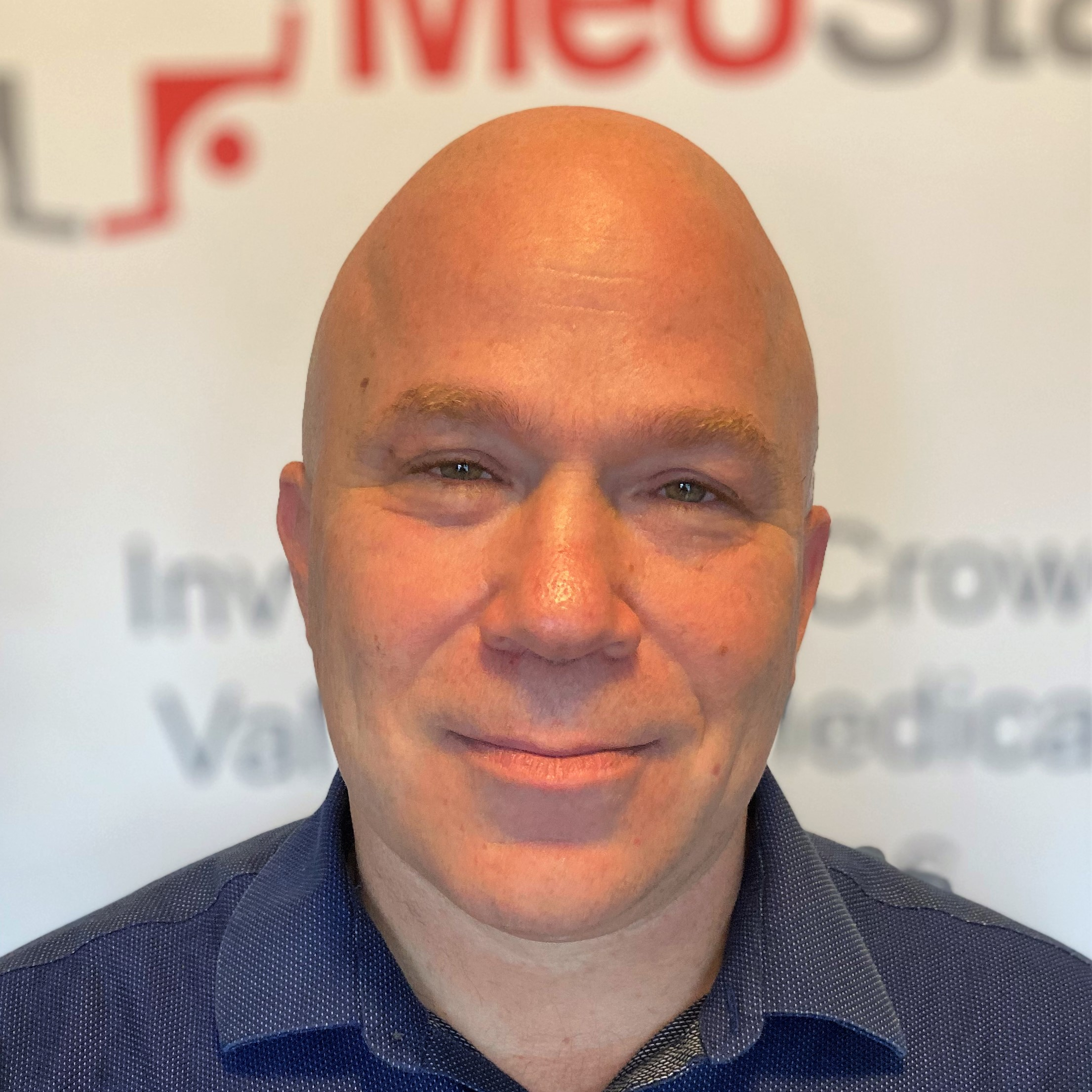VastBiome: VastBiome
Mining the gut microbiome for biomarkers and novel therapeutic molecules
SAN CARLOS, CA United States Biotech AMIA2019 challengeAbout our project

The problem we solve: Checkpoint Inhibitor therapy (CI) is a novel type of immunotherapy and a revolutionary approach to treating cancer. When CI works, it is more effective than any other method of cancer therapy. However, it only works in 20% of patients. Understanding how we can increase the efficacy to CI is a large unmet medical need.
About our solution: Recent studies have linked the microbiome to driving response to CI. Which microbes and how they work is unknown. VastBiome aims to aggregate public and private data in order to generate the largest microbiome database, and to leverage our unique analytical process to discover connections between distinct, but biologically related data, in order to increase statistical power and drive discovery. By starting with patient stool, VastBiome approaches drug discovery by identifying the active ingredients responsible for the microbiome’s clinical impact. By sourcing these ingredients from clinically responding patients who are not experiencing adverse side effects, we are able to gain a competitive advantage in terms of sourcing effective and safe drug leads. In addition, the platform can be used to identify novel biomarkers to risk stratify patients and predict clinical outcomes.
Progress to date:
1) Accumulated 10,000 private and public patient samples across immune related indications
2) Pipeline has shown promising results to accurately predict response to checkpoint therapies with 82% accuracy, compared to the 54% using standard approaches.
3) Identified 2x in silico validated genetic blueprints that are linked to increasing efficacy to CI and reduce immune related adverse events.
4) Secured 7 clinical partners
5) Negotiating terms with multiple large pharma pilots
6) Completed 4 accelerators: 1. Illumina 2. Plug and Play 3. TMCx 4. MassCONNECT
7) In silico validation having identified 2 molecules that increase efficacy to checkpoint therapy or reduce adverse events
About Our Team

Creator: KAREEM BARGHOUTI
Location: California
Education: Duke University, Fuqua School of Business
Bio: Kareem Barghouti is the co-founder and CEO of VastBiome. He received his B.S. in Biological Sciences at UC Irvine and an MBA from Duke University with a concentration in Healthcare Sector Management. His background is in Strategy & Operations and Sales & Marketing. Kareem joined the fast-growing startup Wildfire Interactive as a Business Development rep which was acquired by Google for $450M. He spent 5 years at Google leading the data integrity of Google’s advertising business, managing teams of 100+, and was part of the core product team to launch an online education portal to millions of users globally. He was recognized as the top sales rep globally (1000+ reps) for the New Business Sales team. Before Google, he co-founded an online marketplace (StingyCampus.com), having raised $250K in seed funding and launched the program across 12 universities in Southern California. Most recently, Kareem participated as a Biodesign Fellow at the Texas Medical Center Innovation Institute in Houston, Texas, where VastBiome was born.
Title: CoFounder & CEO
Advanced Degree(s): MBA
About Team Members
Peter McCaffrey
CTO, MD
Biography: Peter McCaffrey is the co-founder and CTO of VastBiome. He is a Board-Certified Pathologist who received his medical degree from The Johns Hopkins University School of Medicine and completed his Clinical Pathology Residency at The Massachusetts General Hospital/Harvard Medical School where he was also Chief Resident. In addition to his medical experience, Peter also has experience and skill in Data Science and Bioinformatics. Prior to Residency, Peter was a Research Fellow in South Africa where he built and managed a Genomics Core facility including selection and installation of sequencing machinery, development of SOPs and fee schedules, and the development of robust bioinformatics capacity including the brokerage of a $250,000 grant from IBM Research for server infrastructure to support custom bioinformatics pipelines. Based upon this work, Peter founded Accetia which built genome analysis pipelines for the purpose of profiling antimicrobial resistance in tuberculosis and enabling personalized therapy. At its peak, he managed nine engineers and built a comprehensive computational biology platform which included a web application with an elastic cloud backend for analysis, a plugin that was installed onto physical sequencing machinery, and an iOS application that served reports. Peter has a strong background in Python and R, with a broad and deep skill set in Bioinformatics. Moreover, he has a deep understanding of the therapeutic applications and limitations both of immunotherapy and of molecular profiling in cancer. Most recently, Peter participated as a Biodesign Fellow at the Texas Medical Center Innovation Institute in Houston, Texas, where VastBiome was born.
Title: CTO
Advanced Degree(s): MD
LinkedIn:
https://www.linkedin.com/in/peter-mccaffrey-b2524843/
Ayin Vala
Chief Data Scientist, M.S.
Biography: Ayin Vala is the co-founder and Chief Data Science Officer of VastBiome. He has over eight years of experience in predictive analytics and machine learning. He is an instructor at Stanford’s Biomedical Data Science Department and is the Chief Data Scientist at the nonprofit Foundation for Precision Medicine. His team works on statistical analysis and machine learning, pharmacogenetics, and molecular medicine. On this effort, he started partnerships with Stanford University, Mayo Clinic, Yale School of Medicine, and Google. He previously developed a deep learning algorithm to detect lung cancer in at risk patients, collaborating on a clinical trial at The Johns Hopkins University School of Medicine. He was a researcher and active resident at the Big Data Systems Laboratory at Harvard University School of Engineering, and at the Launch Laboratory and Innovation Laboratory at Harvard Business School. Ayin is the leading inventor of several patents and recipient of multiple awards relating to the application of machine learning in Healthcare, Biotechnology, and Aerospace Engineering, including a patent approved by NASA. He holds a Masters degree in Information Management Systems from Harvard University.
Title: Chief Data Scientist
Advanced Degree(s): M.S.
LinkedIn:
https://www.linkedin.com/in/ayinv/
Kovi Bessoff
CSO, MD, PhD
Biography: Kovi Bessoff is the co-founder and CSO of VastBiome. He completed his MD/PhD at the University of Vermont. As a surgeon-scientist, Kovi has extensive experience in clinical medicine and microbiology and brings these perspectives to VastBiome to help hone the solution and value proposition to be both scientifically feasible and valuable. He is well versed in the process of identifying and validating molecular leads. Kovi’s PhD dissertation focused on the discovery of novel therapies for cryptosporidiosis, an intestinal infection caused by waterborne parasites from the genus Cryptosporidium. His work led to the development of the first high throughput cell based assay (recently adopted by industry), and therapeutic leads (currently being optimized in animal models) for less than $100,000. In addition, Kovi had spent time at the Centers for Disease Control in San Juan, Puerto Rico and was in charge of coordinating an international effort to standardize dengue virus diagnostics. He built a database and a serum library of diagnostic standards which drastically increased the efficiency of the project. As a second year general surgery resident, he developed a consult handbook and identified opportunities for the general surgery department to use it in conjunction with other tools in the literature to create a framework for outcomes based research. The system is still in use and will provide the foundation for a burgeoning clinical research program at Stanford. Most recently, Kovi participated as a Biodesign Fellow at the Texas Medical Center Innovation Institute in Houston, Texas, where VastBiome was born.
Title: CSO
Advanced Degree(s): MD, PhD
LinkedIn:
https://www.linkedin.com/in/kovib/
About Our Company

VastBiome
Location: 809 LAUREL STREET, #255
SAN CARLOS, CA 94070
US
Founded: 2019
Website: http://www.vastbiome.com/
Twitter: @vastbiome
Product Stage: Prototype/MVP
Employees: 3-5
How We Help Patients
Our products will help patients by providing them a screening prior to being given treatment for checkpoint therapy. The benefit is that these treatments are known to cause adverse events and cost in the $100,000s annually to administer. We can prevent spending millions on drugs that don't work for patients as well as prevent sever side effects.
How We Help Physicians
We can support physicians in deciding what is the best choice of treatment for cancer patients. They would ship a stool sample to our lab and we would send a report providing recommendations on whether the immunotherapy treatment has a high or low chance of driving response in treating cancer patients. This will limit the physician's chance of selecting a treatment that may lead to bad outcomes.
How We Help Hospitals
The biggest value for hospitals is reducing costs. By treating patients in a more effective manner we could prevent sunk costs related to the time patients remain in the hospital to the cost of treatments that don't pan out for the patients. The insurer does not cover the entire treatment and sometimes hospitals needs to support some of the associated cost. Additionally, by increasing the treatment quality for patients, this would increase the hospital's credibility which would drive more business for the hospital and higher rankings.
How We Help Partners
VastBiome has access to some of the top tier institutions and key opinion leaders from both academia and industry. We would support the community and provide access to resources and guide our mentors with our expertise in drug discovery, bioinformatics and data science.
Challenge Mission
Affiliation(s)
The team founded VastBiome at the Texas Medical Center in Houston Texas. We were part of the TMCx Biodesign Fellowship. Our founders are connecting to Johns Hopkins, Stanford Medicine, Mass General (Harvard) and the University of Texas Health System
Key Milestones Achieved and Planned
1) Accumulated 10,000 private and public patient samples across immune related indications
2) Pipeline has shown promising results to accurately predict response to checkpoint therapies with 82% accuracy, compared to the 54% using standard approaches.
3) Identified 2x in silico validated genetic blueprints that are linked to increasing efficacy to CI and reduce immune related adverse events.
The key inflection points are to demonstrate that the VastBiome discovery engine is able to identify novel molecules sources from the gut microbiome.
Our Competitive Advantages
There are a number of microbiome therapeutics companies in the field approaching the discovery process in various ways (live bacterial products vs fecal transplants vs novel molecules). Some of the direct competitors in terms of approach include DeepBiome Therapeutics, Kintai Therapeutics and Sirenas. VastBiome has developed a proprietary approach to collect, sequence, analyze and screen metagenomic data. We have provisional patents on the platform and are able to identify patentable new drug candidates through our novel methods.
We stand out with our proprietary methods to source novel molecules and biomarkers. We also have access to large scale data sets that gives us a significant advantage compared to the field. Lastly, our business model is to work with pharma companies to prove
Barriers to Entry
The biggest barriers to the market are our proprietary and patent pending compuational approach. Our proprietary assay to screen the genes we find valuable to produce drug like molecules. Access to high quality data from top tier institutions.
Funding, Partners and Alliances To Date
Have raised $500K preseed from VCs as a Safe Nnote.
$200K from Illumina for sequencing credits
$100K from AWS for cloud computing
$500K from TMC to fund our initial year as fellows
7 clinical partners which include Baylor college of medicine, Moffitt cancer center amongst others
Revenue
No revenues at the moment
$1.5M projected in the next 3 years from service fees for using our biomarker and drug discovery platform.
1-2 deals with pharma that would be formed based on upfront, milestone and royalty payments. Comparables have ranged from $300M to $1B once preclinical evidence is shown
Innovation Details
Intellectual Property Summary
Ability to predict response to checkpoint therapy using a computational model developed internally. This is a provisional patent.
Ability to identify key genes in the gut that produce metabolites with drug-like properties. This is a provisional patent.
In the process of getting an exclusive license on a high throughput proprietary bioassay to screen genes for drug-like properties.
Clinical Information
Fecal transplants could help patients on cancer immunotherapy drugs
Oncologists deploy an array of strategies to stop cancer, from chemotherapy to radiation to drugs that boost the body’s immune defenses. Now, another potential therapy is being tested in clinical studies: fecal transplants. Early results from two groups described at the annual meeting of the American Association for Cancer Research (AACR) here this week suggest some patients who initially did not benefit from immunotherapy drugs saw their tumors stop growing or even shrink after receiving a stool sample from patients for whom the drugs worked.
Microbiome and Anticancer Immunosurveillance
Anticancer immune responses can be considered a desirable form of autoimmunity that may be profoundly shaped by the microbiome. Here, we discuss evidence for the microbiome's influence on anti-tumor immunosurveillance, including those that are indirect and can act at a distance, and we put forward hypotheses regarding mechanisms of how these effects are implemented. These may involve cross-reactivity between microbial and tumor antigens shaping T cell repertoires and/or microbial products stimulating pattern recognition receptors that influence the type and intensity of immune responses. Understanding how the microbiome impacts natural cancer immunosurveillance as well as treatment-induced immune responses will pave the way for more effective therapies and prophylactics.
Gut Microbiome: A promising biomarker for immunotherapy and colorectal cancer
Research has been driven towards finding therapy predictive biomarkers for colorectal cancer (CRC) with a special interest in studying the gut microbiome. Gut microbiome acts not only as a barrier to prevent bacterial invasion and infection, but it also affects the efficacy of hematopoietic-cell transplantation, chemotherapy, and immunotherapy. Recently, immunotherapy, which potentiates the host immune system, has revolutionized cancer therapy in general and CRC treatment specifically by increasing the quality of life and the survival of a subset of patients with this disease. In immunotherapy, the gut microbiome plays an important role in cytotoxic T-lymphocyte-associated antigen 4 (CTLA-4) blockade, programmed cell death protein 1 (PD-L1) mediation, and T cell stimulation. As such, this review will cover the role of gut microbiome in CRC, summarize approved immunotherapy treatments for CRC, and focus on the potential use of gut microbiome as a biomarker for immunotherapy.
A deep learning genome-mining strategy for biosynthetic gene cluster prediction
Natural products represent a rich reservoir of small molecule drug candidates utilized as antimicrobial drugs, anticancer therapies, and immunomodulatory agents. These molecules are microbial secondary metabolites synthesized by co-localized genes termed Biosynthetic Gene Clusters (BGCs). The increase in full microbial genomes and similar resources has led to development of BGC prediction algorithms, although their precision and ability to identify novel BGC classes could be improved. Here we present a deep learning strategy (DeepBGC) that offers reduced false positive rates in BGC identification and an improved ability to extrapolate and identify novel BGC classes compared to existing machine-learning tools. We supplemented this with random forest classifiers that accurately predicted BGC product classes and potential chemical activity. Application of DeepBGC to bacterial genomes uncovered previously undetectable putative BGCs that may code for natural products with novel biologic activities. The improved accuracy and classification ability of DeepBGC represents a major addition to in-silico BGC identification.
Gut microbiome modulates response to anti-PD-1 immunotherapy in melanoma patients
Preclinical mouse models suggest that the gut microbiome modulates tumor response to checkpoint blockade immunotherapy; however, this has not been well-characterized in human cancer patients. Here we examined the oral and gut microbiome of melanoma patients undergoing anti–programmed cell death 1 protein (PD-1) immunotherapy (n = 112). Significant differences were observed in the diversity and composition of the patient gut microbiome of responders versus nonresponders. Analysis of patient fecal microbiome samples (n = 43, 30 responders, 13 nonresponders) showed significantly higher alpha diversity (P < 0.01) and relative abundance of bacteria of the Ruminococcaceae family (P < 0.01) in responding patients. Metagenomic studies revealed functional differences in gut bacteria in responders, including enrichment of anabolic pathways. Immune profiling suggested enhanced systemic and antitumor immunity in responding patients with a favorable gut microbiome as well as in germ-free mice receiving fecal transplants from responding patients. Together, these data have important implications for the treatment of melanoma patients with immune checkpoint inhibitors.
We have not submitted for regulatory approval as of yet. We are focused on preclinical validation and testing our biomarker on clinical trials
Regulatory Status
FDA plans have not been finalized as of yet. However, we do plan to submit review for our biomarker to predict response to checkpoint therapy from a stool sample. We also are working on a couple of early staged preclinical assets that require further testing before submitting to the FDA
How we will use the funds raised
Funding is 77% R&D and 23% G&A
$1M towards collecting patient samples and generating a large dataset upwards of 2000 stool and blood samples
$700K for screening our discoveries in the lab, running experiments
$1M towards scientific staffing and cloud computing
$300K towards operational needs
Thank You
Cancer is a massive unmet need that continues to threaten the world's population. This is no easy task to defeat however recent research has given us hope. Given our team's expertise and access to top tier institutions, your contribution will enable us to get one step closer to eradicating cancer. With a functional drug discovery platform, we are well on our way. Please spread the word and thank you for your support.
Updates
No updates found .
Supporters
-

12/13/2019 - Liked the project.
12/13/2019 - Followed the project., DO
11/05/2019 - Liked the project., PhD
11/04/2019 - Followed the project., PhD
11/04/2019 - Interested in helping your project as a mentor or team member.
11/04/2019 - Liked the project. , MS, RDN, LDN
, MS, RDN, LDN
11/03/2019 - Liked the project. , MS, RDN, LDN
, MS, RDN, LDN
11/03/2019 - Followed the project. Instant Feedback
Instant Feedback
Help us find best new ideas to fund by telling us what you think. Your feedback goes straight to the team behind this project in private, so tell them what you really think.
71Medstartr
Index Score71
Interest
Score0
Adoption
Score6
Likes0
Partners0
Pilots4
Follows-
This campaign has ended but you can still get involved.See options below.
$ 3,000,000 goal
Instant Feedback
Help us find best new ideas to fund by telling us what you think. Your feedback goes straight to the team behind this project in private, so tell them what you really think.




